Rainforest Foundation Response to COVID-19
The COVID-19 crisis is disproportionately affecting vulnerable populations and indigenous communities are no exception.
Rainforest Foundation US (RFUS) recognized early on that the needs and responses to the crisis would change over time, which is why we implemented an array of short- and long-term interventions.
These responses leverage existing relationships, networks and tools, while also seeking new collaboration and investments from a variety of organizations, including governments, foundations, other non-profits, and on-the-ground partners.
RFUS is both a forest protection and a human rights organization. As such, we take our role in protecting the lives of indigenous peoples just as seriously as our role in supporting them to protect forests.
This crisis is personal. Our partners are family.
How the COVID-19 Crisis is Affecting Indigenous Peoples
Indigenous communities are especially vulnerable to COVID-19. While there is no evidence to suggest that indigenous peoples’ immune systems are more susceptible to the COVID-19 virus than other populations (as has been the case with many introduced diseases in the past) impoverished community members often suffer from chronic health conditions such as diabetes or kidney disease that can increase the risk of extreme illness and death from the virus. Meanwhile, indigenous peoples’ communal lifestyles, remote locations, and the lack of health care services mean that outbreaks in indigenous communities or often pervasive and difficult to contain. Indigenous elders – key to a community’s social fabric and holders of vast knowledge about rainforest land and life – are especially at risk. Already a number of elder members of indigenous communities in the Amazon have died from coronavirus simply for lack of a five dollar oxygen tank or because they could not make it to a hospital in time.
How Rainforest Foundation US is Tackling the COVID-19 Crisis
From the moment the pandemic hit Latin America, in early 2020, RFUS has been working around the clock to provide communities with four primary types of assistance:
Information and Communication
Indigenous organizations across the Amazon (and elsewhere) immediately recommended that communities go into voluntary self-isolation.
A lack of appropriate information compelled RFUS to work with partners on the ground to produce posters, radio spots, and videos in indigenous languages and share them with communities to inform them of the seriousness of the pandemic and key prevention measures.
Support provided through November 2020: US$ 19,027
Humanitarian Support
Many communities are safest if they stay in place, which means that they must minimize exposure to visitors and forgo travel to outbreak areas. Such measures make it difficult for communities to sell goods and access some basic necessities, such as the fuel, cooking oil, and salt that they have come to rely on. In order to support their self-isolation, our partners have initiated campaigns to raise funds and supplies.
Support provided through November 2020: US$ 77,760
Medical Supplies and Protective Equipment
Indigenous organizations are actively coordinating with the government to ensure it fulfills its obligation to provide medical supplies and equipment, PPEs, and disinfection kits to all, especially leaders, monitors staffing barriers, and indigenous health workers. Now that the disease is spreading more widely, these supplies have become all the more important.
Support provided through November 2020: US$ 171,606
Supporting Sustainable Economic Activities
Remote indigenous communities, most of whom live in extreme poverty, are particularly vulnerable to the short- and long-term impacts of the COVID-19. Quarantine measures and the paralysis of global trade and travel have made a bad situation worse. Therefore, RFUS and indigenous organizations are developing strategies and projects that will allow these communities to safely generate income.
Support provided through November 2020: US$ 11,000
The COVID-19 crisis is a challenge to leaders around the world. This is especially true for indigenous organizations and leaders operating in historically neglected areas that lack basic public services. But the pandemic is also an opportunity to strengthen local, regional and national indigenous governance systems. This strengthening is very much at the core of our work across tropical Latin America. Indigenous organizations in Peru, Brazil, Guyana and Panama are quickly adapting and stepping up to address the unique demands that the global pandemic has created as it steadily seeps into the most distant corners of the forest.
Leveraging Technology for COVID-19 Relief
Rainforest Foundation US is leveraging its extensive network of tech-enabled indigenous partners, including hundreds of remote field monitors who, under normal circumstances, are working to detect and stop illegal deforestation. These networks and individuals are now adapting their skills and tools to capture critical health information in communities. Indigenous data managers are now compiling valuable health care information and keeping state agencies abreast of new outbreaks. Meanwhile, indigenous leaders and administrators – accustomed to pursuing criminal cases and working the levers of regional governments to stop illegal deforestation – are using their skills, connections, and political influence to improve government and international responses to COVID-19 and ongoing deforestation threats.
Deforestation During Coronavirus
Illegal loggers and miners are not staying home and observing social distance, which is why we are also addressing the numerous secondary effects of the virus, such as increased logging, mining and illegal border crossings that threaten indigenous livelihoods every bit as much as the virus itself.
With inspections and other activities on hold due to the pandemic, illegal actors are exploiting a dramatic drop in official inspections and other activities on hold due to the pandemic. In Brazil, this drop in enforcement has been compounded by a weakening of environmental regulations that predates the pandemic. Meanwhile, illegal deforestation and mining is increasing exponentially during this crisis, posing new levels of public health and environmental threat to indigenous territories.
Partner Initiatives
In addition to coordinating local responses, Rainforest Foundation US, our allies and partners are spearheading several large initiatives to scale coronavirus responses across the region:
- Amazon Emergency Fund – A collaboration between Rainforest Foundation US, Amazon Watch, COICA and dozens of other allies and partners to raise and distribute funding directly to indigenous communities impacted by the coronavirus.
- SOS Rainforest Live – A collaboration between the three Rainforest Foundations (US, UK and Norway) to work with artists, scientists and indigenous leaders to secure direct funding for indigenous groups impacted by the coronavirus.
- COVID-19 response in Peru – A new partnership among USAID, CEDRO Peru, and Rainforest Foundation US, which will regularly deliver health information and related messages to vulnerable indigenous communities in the Peruvian Amazon Departments of Loreto and Ucayali. At the same time, this project will engage existing RFUS networks to leverage instant data from communities as they report the impacts of the COVID-19 crisis to regional organizations and the government, generating support and visibility. This is a two-year program that coordinates support among the Peruvian government, indigenous organizations, and other allies to prevent, mitigate and respond to immediate needs.
- Remote monitoring and advocacy – An effort by Rainforest Foundation US and partners in Peru, Guyana, Brazil and Central America to conduct expanded monitoring of illegal activity in indigenous territories – using a combination of near-real-time satellite data, high resolution imagery and on-the-ground networks – while travel to many of these areas is restricted due to coronavirus.
- Fora Garimpo, Fora Covid (Miners Out, COVID Out) Campaign – A major campaign spearheaded by Yanomami organizations to remove the roughly 20,000 illegal miners operating in the Yanomami Territory in northern Brazil. COVID-19 has been spreading in communities closest to illegal mining areas, with potentially devastating results. RFUS is collaborating on the campaign together with partners and allies Hutukara Yanomami Association, Instituto Socioambiental, Survival International, Amazon Watch and many others. Click here to sign the petition at minersoutcovidout.org
- Supporting economic sustainability in the COVID-19 crisis: RFUS is helping communities develop and implement sustainable revenue generating activities within the parameters of health protocols, such as reforestation with income generating species and securing community level payments for their forest protection using blockchain technology.
Related News
Support Our Work
Rainforest Foundation US is tackling the major challenges of our day: deforestation, the climate crisis, and human rights violations. Your donation moves us one step closer to creating a more sustainable and just future.








